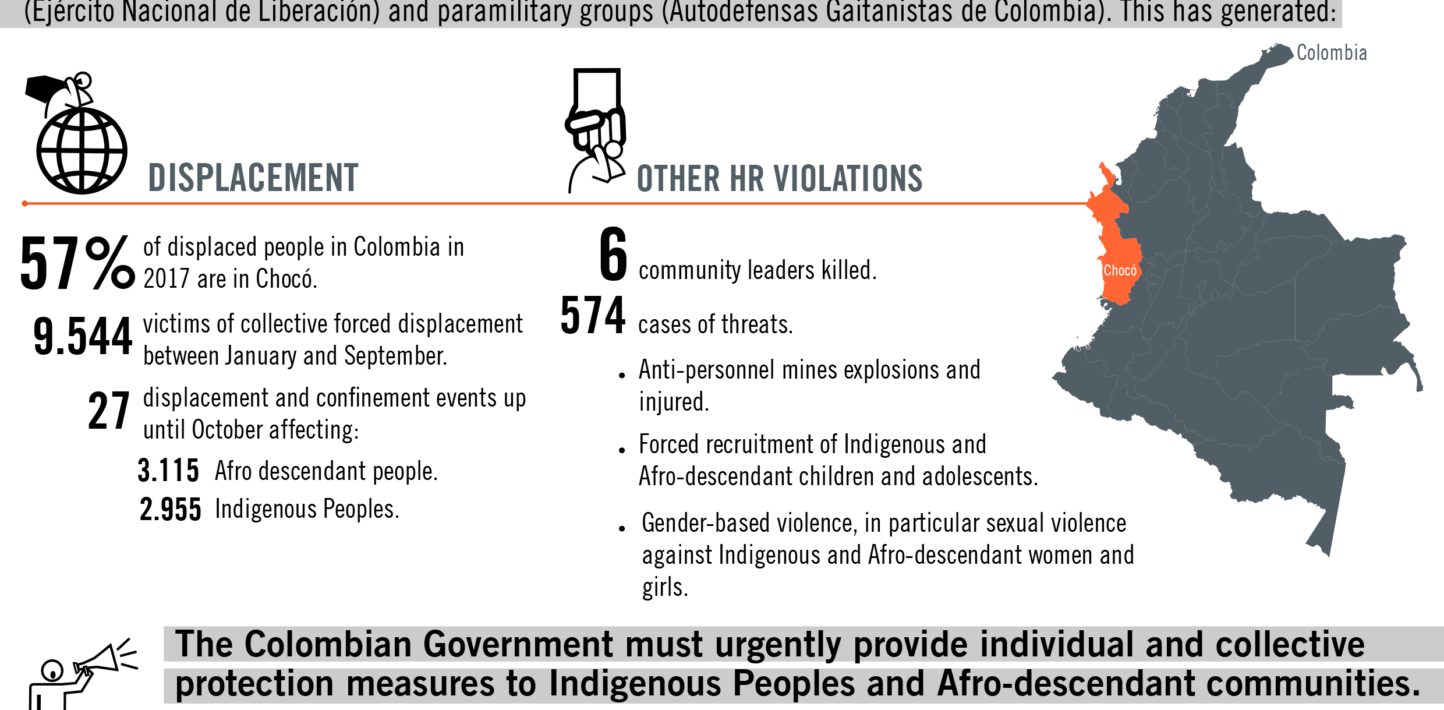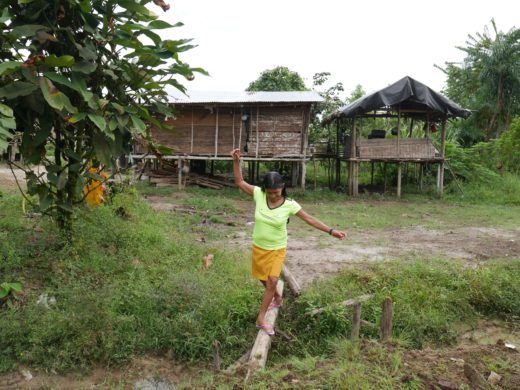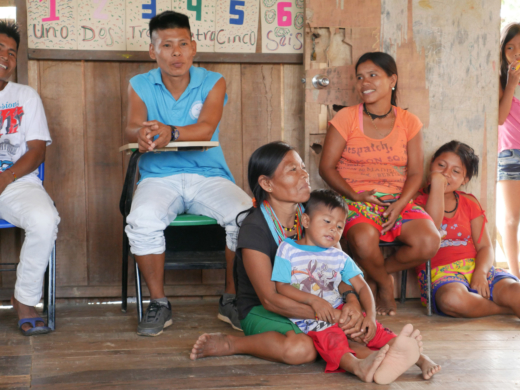The years of solitude continue
The human rights situation in the department of Chocó on Colombia’s Pacific coast remains critical. Since the demobilization of the FARC in January 2017, armed groups such as the National Liberation Army (ELN) and the Gaitanista Self-Defence of Colombia (AGC) are vying for control in the territories the FARC has left.
Indigenous and Afro-descendant people in the region have been the main targets of killings, attacks against human rights defenders, forced collective displacements, confinement and other human rights violations. The Colombian state must address this serious situation urgently and provide protection to the communities of Chocó.
For us peace must mean an end to ALL illegal armed groups
Lino Membora, representative of the Indigenous Council of Chocó
What happened in Chocó after the signing of the peace agreement?
2017 – a year of peace?

DEMAND PROTECTION FOR INDIGENOUS PEOPLES AND AFRO-COLOMBIAN COMMUNITIES IN THE DEPARTMENT OF CHOCÓ IN COLOMBIA
For the Indigenous and Afro-descendant communities of the department of Chocó on Colombia’s Pacific coast, the violence and violations of the rights to life, physical integrity and security continue, despite the 2016 Peace Agreement. Join Amnesty International and call for immediate and appropriate protection for these communities and their leaders.
Since the signing of the Peace Agreement between the Colombian government and the FARC (Revolutionary Armed Forces of Colombia) guerrilla group, the human rights situation in the department of Chocó has remained critical. After demobilization, the FARC left the territories they had controlled and since then armed groups such as the National Liberation Army (ELN) and the Gaitánista Self-Defence of Colombia (AGC) have vied for control of these territories. The Colombian state has failed to effectively fulfil its obligation to protect those affected by the arrival of these armed groups. The greatest impact has been on Indigenous Peoples and the Afro-descendant communities who have suffered threats against their leaders, collective displacements, confinement and targeted killings. Mass displacement has had a damaging effect on collective territories and defenders promoting the restitution of land and processes for the return of land that was violently expropriated are at great risk.
Indigenous Peoples and Afro-descendant communities and their leaders in the department of Chocó are in urgent need of protection.
Call on the Colombian government to:
Develop and implement urgent measures to guarantee the protection of collective Indigenous and Afro-descendant territories in areas of armed conflict in Chocó, with primary input from consultation with community leaders and representative organizations.
Provide effective and timely protection measures for Afro-descendant and Indigenous leaders in Chocó, ensuring their participation throughout the process.
Press ahead urgently with implementation of the Peace Agreement, especially those articles relating to the rights of the victims of conflicts and communities.

COLLECTIVE FORCED DISPLACEMENT
The signing of the Peace Agreement in November 2016 did not put a stop to the fighting between armed groups. Nor did it end the realignment of these groups in the area after the departure of the FARC. As a result, the forced displacement of Indigenous Peoples and Afro-descendant communities in Chocó is continuing.
The living conditions of displaced people are precarious: they do not have access to emergency humanitarian aid, health care, adequate food or decent housing. In the absence of a comprehensive response from the state, many communities see no option other than to move temporarily between villages and then return to their homes without any protection. This puts them at risk of further attacks and displacement.
In 2017, 57% of Colombia’s displaced people are in Chocó.


Anti-personnel mines have exploded in Indigenous and Afro-descendant territories, injuring a considerable number of people and generating fear in communities. This fear has in some cases led to forced displacement as entire communities abandoned their lands to escape this threat. In other cases, the presence of mines has led to the confinement of communities. Communities fear going out of their territories, leaving them isolated in conflict zones facing serious food and health insecurity. The confinements reported in the Chocó mainly affect Indigenous reserves.
The land is filling up with mines. We don't want that. We don't want you to lay mines near our communities. We don't want armed groups in our community. We don't want more war. Please, listen to us
Sebastián Carpio Maheche, a young Wounnan Indigenous man who was injured by an anti-personnel mine


The outlook is not hopeful. Sometimes when we talk about these issues, people think that we disagree with the peace process, but that's not the case. On the contrary, we are worried that this could turn into another war, because anyone who lived through the conflict doesn't want to see this happen again. All communities in Chocó opted for peace in the hope their rights would be ensured
Afro-descendant leader and victim of the Bojayá massacre

